British novelist Helen Hollick, whose work is both self-published and trade-published, advises indie authors on how to choose and use an editor to improve their writing craft and the quality of their books.
To professionally edit – or not to professionally edit?
That is the question. Actually, it isn’t a question, it is an essential. No mainstream book would be published without several edits – from a full, technical edit of an early draft to a proofread of the final ready-to-print version. I often hear “I can’t afford an editor”. To be blunt, if you want to be a professional writer, use a professional editor.
What difference does an editor make?
Would you build a house without an architect? You might be happy with wonky walls and a sagging roof, but will you be able to sell this house? In the same way, your wonderful story will be marred by typos; you’re/your or hear/here; incorrect punctuation and grammar, and those missed continuity errors. Not to mention point-of-view changes, author’s voice and anachronisms! As I say in my Tips for Writers book Discovering the Diamond, which I wrote in conjunction with my editor, Jo Field, in order to assist novice writers reach their dream:
“Anyone can write a book. Not everyone can write a readable book.”
To ensure your labour of love shines to the brightest sparkle, and becomes a very readable book, an editor is essential. And no, not just your sister who is a teacher, or your friend who reads lots of books.
“Are ewe awre tht pple can mnage to reed sntncs wtht vwls? And the humen aye can Miss obvious-maid misteaks?’
What does an editor actually do?
A professional editor will pick up on the technical side of writing, and can help a novice writer span that leap from amateur to pro. I have worked with many editors during my twenty years as a published author. Most have been fabulous, a few have been – how shall I say this tactfully? – frustrating.
A good editor will:
- work with you as a team player
- suggest corrections in a constructive manner
- point out errors, but not insist on changing them
Twice now I have had an editor who decided to alter my personal style. Strictly speaking, yes, the grammar was incorrect – but I deliberately write that way. For example, “Jesamiah took the bottle of rum from the shelf, drank.” I wrote that sentence, short and sharp, indicating his need for a drink. The editor changed it to “Jesamiah took the bottle of rum from the shelf and drank.” Which gives an entirely different emotional feeling to the situation. I must add that this was not my usual editor. Jo had been unwell, so I hastily found a replacement. Big mistake. What I should have done was put the book on hold and stick with my trusted “team leader” editor. Lesson learned the hard way!
Another editor (many years ago!) altered a particular word throughout my historical fiction novel, The Kingmaking. I used “Sa” instead of “Yes” to give a feel of the past. The editor changed every “sa” to “yes”. I changed them all back.
How to find a good editor
The huge advantage about being an indie author, unlike a traditionally published one (I am both), is that we get to choose our own editors. We can have the pick of the pack, so use this advantage to full advantage!
The best way to select an editor is by word of mouth. Ask for recommendations on Twitter or on the ALLi Members' Facebook Forum. Then ask to see some of a possible editor’s work. Explain what you want: keep in mind a copy-editor or proofreader may not check for continuity errors or “head-hopping” in dialogue, for instance.
Find yourself a good editor – and treasure him or her, because a good editor transforms a good book into a great book.
For more information about Helen Hollick, visit her website www.helenhollick.net and her blog www.ofhistoryandkings.blogspot.com.
 Like to share Helen's excellent advice with the Twittersphere? Tweet this:
Like to share Helen's excellent advice with the Twittersphere? Tweet this:
“Indie #authors: why you need an #editor – top advice from a bestselling novelist via @IndieAuthorALLi http://wp.me/p44e6Y-1Hu”

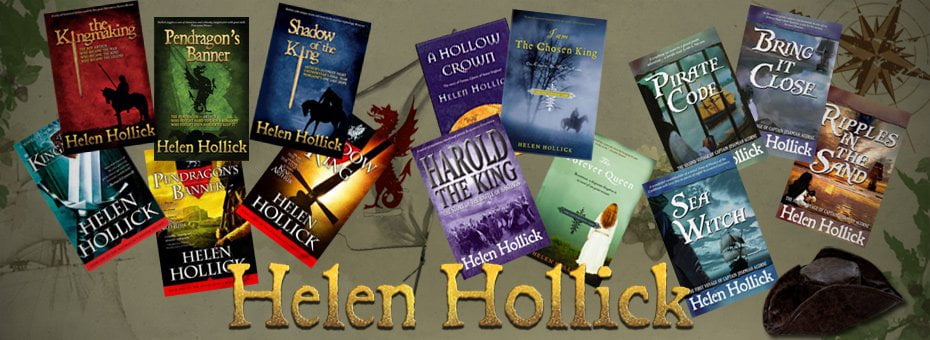
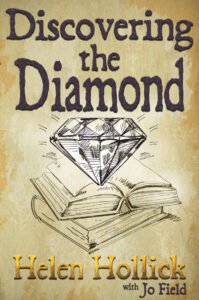
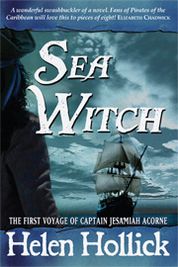
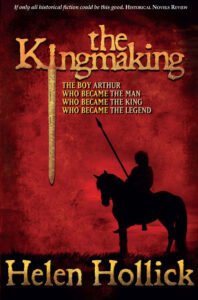
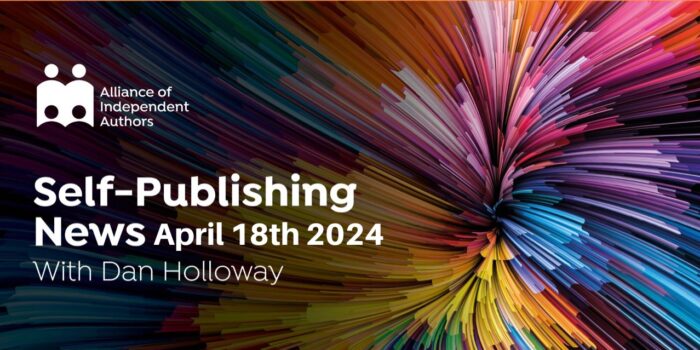
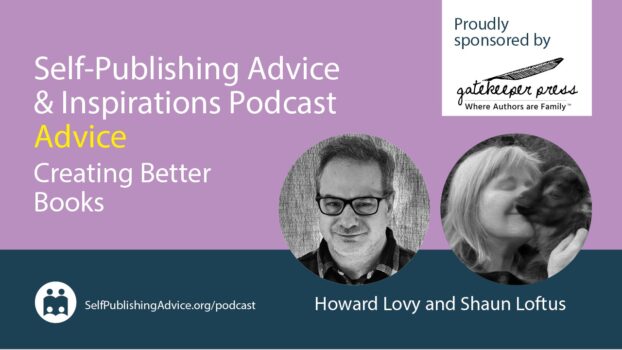
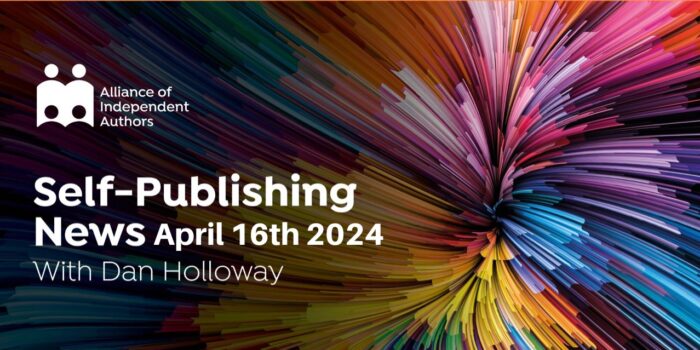
I have pulled all 31 of my eBooks off of Amazon to re-edit them. Ten are back on Amazon. It is a pain staking effort to make each book the best edited book within my ability. Those 21 books equal about 5,000 pages to re-edit.
Why don’t I use a editing service?
How about thousands of dollars I don’t have to give them.
For someone well to do, its a great idea to have a reputable editing service polish the book even more and give the reader the best grammar/punctuation book they can have so they aren’t distracted by bad grammar.
But in the real world, most of us aren’t well to do.
case in point:
The lowest fee I have found was $550 per book. Multiply that by 31 books and that editing guy or gal made $17,000.00 off of me.
Will I recoup that investment threw sales? Not a chance.
The highest price was $1,050 per book. Multiply that by 31 books and that editing guy or gal just made $32,550.00 off of me.
So where does that leave a financially poor writer?
To do his best to improve the grammar him or herself.
[…] Writing: Why You Need An Editor […]
[…] Here’s a useful post on some of the things you should consider when choosing an editor for your work. […]
Great advice, Helen. I agree that it is absolutely essential to have a book both copy edited and proof read, preferably not by the same person. However, as you say, it is expensive and for an indie author not selling many books, it can be prohibitively so. I paid around €1200 to have the second book in the Rare Traits Trilogy, Delusional Traits, copy edited. It was money well spent and the book certainly ended up being far better for it, but it takes quite a while to recoup that sort of sum and feed it onto the next book – I’m still in the red!
I should like to add that it’s a pity some trade publishers don’t follow your advice with respect to proof reading. They might well do a good job editing and proof reading a book for printing, but I have found a number of books that have been released as ebooks several years after the print book that are full of errors. I assume this happens because there are no digital files of the book and so the publisher has the book scanned and ocr’d (not a word, sorry, but you know what I mean). However, ocr is notorious for being error-prone, but it seems that lazy publishers ignore that and just put the book out there. An example is the excellent diet book, The Diet Delusion by Garry Taubes (should be compulsory reading for anyone interested in their health). As a paperback, it is perfect, but on the Kindle it is so full of mistakes that are clearly from the ocr process that it is almost unreadable. Publishers are doing an author a total disservice by being so lazy. Another example: I recently went to buy the first volume of Game of Thrones for the Kindle, but on reading the 1 star reviews, they were largely about the same thing – not criticisms of the story but of the poor transition from paper to lcd. As a result I didn’t buy it; I’ll get the paperback, which is probably what the publisher would prefer!
I’m so glad for this post right now, because I don’t need an editor immediately, but I always wait too long before trying to figure out how to get one. Some questions for you, Helen (or anyone):
1. I’m a bit intimidated about the costs for different kinds of editing – there’s developmental, copy editing, and proofreading. Is it difficult to get someone who is skilled at all three, or is it better to spread the assignments among specialists? And what is the range (a ballpark figure) that I should expect to pay for the entire process?
2. I had a disastrous experience with the copyediting service at Createspace (on the bright side, they gave me a full refund because the supervisor agreed it had been badly done). Nobody is perfect, and certainly I am the ultimate quality assurance inspector, so in the absence of an ombudsman, if I’m finding too many mistakes in a freelancer’s work, is there some kind of contractual sliding scale of consequence? In other words, I’m sure it wouldn’t be “I found a typo, I’m not paying you”, but also surely not “I spent a half-day correcting your work, but here’s your money.”
3. I will confess that, other than a developmental edit for my first book, I haven’t paid for professional editing services, but I’ve always been uncomfortable about the fact. My final question is about the issue of contracting an editor in mid-series. My next book will be the third in the series. In a sense, it will stand on its own, but I wonder if an editor would be more in sync with me and the world I’ve created, and benefit from reading the first two. I wouldn’t expect an editor to read for free, but what’s the guideline on that? Is it worth it to pay something extra to bring them up to date? If so, by what approximate percentage?
Sorry for taking up so much space. Please God I’ll be able to get WordPress to post it now!
I agree. I’ve had good editors, and I’ve had bad. Two of them made the changes themselves, so I had no idea what they changed. One of them made it worse than it was. >_<
The first chapter book I'm working on now starts with a journal entry about the world the main character lives in. I show that world over the course of the book, but I give her perspective first. I've had two people tell me it should be changed, but I paraphrase that entry for later uses. Errgh!
Great advice, Helen… editors wonderful if a team effort …
Now for being controversial – last time I paid someone, this time, my partner’s my editor … HOWEVER this is ONLY possible because he is ‘in the business’ and very sharp-eyed over both the spelling/grammar and the story-line, plus any of my ‘this sentence doesn’t seem to say what you mean…actually what do you mean?’ stuff. He suggests places where I might make it more punchy, etc. The plus is he does know and respect my style choices – sometimes with questions though! Also that we can work in the evenings together. Also, we’re very long-term partners so we have few if any illusions, and no flattery.
Am writing this as I wonder if anyone else is being edited by a family member, and any thoughts on this.
Will add that I’m also in touch with my previous editor and wd use her again.